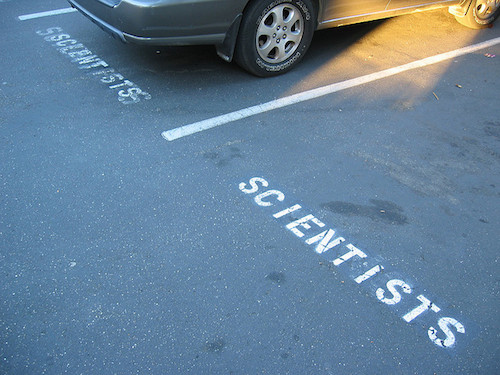 Intelligent Design
Intelligent Design
Why Scientific Fraud Matters

The guys at Retraction Watch, Adam Marcus and Ivan Oransky, have an excellent op-ed in the New York Times pointing to the need for more effective policing of federally funded scientific "fraudsters." They tell the story of one researcher at Iowa State who got caught and arrested for doctoring tests of a potential AIDS vaccine.
The problem is that such aggressive weeding of the scientific research garden is not the norm:
Even though research misconduct is far from rare, Dr. [Dong-Pyou] Han’s case was unusual in that he had to resign. Criminal charges against scientists who commit fraud are even more uncommon. In fact, according to a study published last year, “most investigators who engage in wrongdoing, even serious wrongdoing, continue to conduct research at their institutions.” As part of our reporting, we’ve written about multiple academic researchers who have been found guilty of misconduct and then have gone on to work at pharmaceutical giants. Unusual, too, is the fact that Iowa State has agreed to reimburse the government about $500,000 to cover several years of Dr. Han’s salary and that the National Institutes of Health has decided to withhold another $1.4 million that it had promised the university as part of the grant.
But don’t applaud yet, taxpayers: The N.I.H. isn’t doing anything about the rest of the $10 million granted to Dr. Han’s boss, Michael Cho, after the two scientists announced the apparently exciting results now known to be fraudulent.
If scientific misconduct is "far from rare," that matters for a lot of reasons, but one specially pertains to our primary concerns here. Resistance to new thinking about evolution, on the part of those of us who aren’t scientists and even those who are, comes chiefly from complacency, which in turn comes from an excessively high regard for scientists and their enterprises.
Science, the tradition of empirical investigation of nature, is indeed grand and awesome. But the folks who pursue it for a living at any given moment are not above questioning. They are not more special than you. They are not more inherently trustworthy than anyone else. Above all, they are as vulnerable to "worldview-induced blindness" (in Chuck Colson’s helpful formulation) as anyone else.
Clergy scandals in recent decades forced many thoughtful laypeople to rethink their automatic trust in anything a pastor, priest or rabbi says, since they are, after all, human beings. In retrospect, while painful, that was not entirely a bad thing. Thinking for yourself, drawing your own conclusions about faith traditions, is a sign of spiritual adulthood. Growing up hurts.
Why would it be much different with science? Because science is so challenging, the pool of information so vast and deep? Guess what, though evangelizing atheists would have you think otherwise, religion is much the same way.
Far, far too many otherwise thoughtful people are satisfied to be spoon-fed their science, passively swallowing anything presented as prestigious in an academic context, refusing to do the hard intellectual work of understanding challenges to orthodoxy like the one posed by the theory of intelligent design. Oh, "scientists say," don’t you know? According to the "scientific consensus," blah, blah, blah.
As the extent of scientific fraud, the fact that it is "far from rare," becomes better known, there seem to be grounds for hope that intelligent laypeople will consider some of the important questions in science for themselves, rather than always kicking them upstairs.
That would be a most welcome development.
